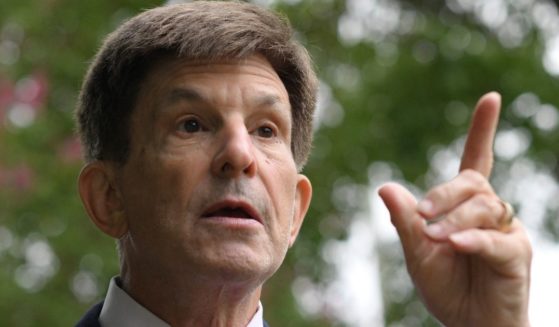Judge Sullivan Puts Hand on Scale of Justice in Flynn Case Yet Again
U.S. District Judge Emmet Sullivan seems bound and determined to destroy whatever credibility he had as an impartial jurist as his handpicked de facto prosecutor files an entirely predictable brief opposing the dismissal of the Michael Flynn case.
Former federal Judge John Gleeson, whom Sullivan appointed to make the case against dismissal, filed an amicus brief Wednesday arguing that to allow Flynn to go free would be a “gross abuse of prosecutorial power.”
Gleeson was appointed by former President Bill Clinton as a federal district judge in New York in 1994, retiring from that position in 2016.
Prior to Sullivan tapping him to make the case against Flynn, Gleeson co-authored an Op-Ed published in The Washington Post in early May arguing that the judge should not allow the Department of Justice to drop the case against the retired three-star general.
“Prosecutors deserve a ‘presumption of regularity’ — the benefit of the doubt that they are acting honestly and following the rules. But when the facts suggest they have abused their power, that presumption fades,” Gleeson and former U.S. attorney Marshall Miller wrote.
“If prosecutors attempt to dismiss a well-founded prosecution for impermissible or corrupt reasons, the people would be ill-served if a court blindly approved their dismissal request,” they added.
Sullivan undoubtedly fully anticipated that Gleeson would make the same case in his court filing, which he did.
Flynn attorney Sidney Powell, in an email to The Western Journal, described the document as “Predictable, wrong, and completely result-driven.”
Mollie Hemingway, senior editor of The Federalist, tweeted regarding Gleeson’s filing, “Just fyi that this is what the ex-judge said in his partisan op-ed when prosecutors moved to drop charges (as is their Constitutional right and responsibility) and precisely why Sullivan later named him an unconstitutional ‘shadow prosecutor’ to resurrect the targeting of Flynn.”
Just fyi that this is what the ex-judge said in his partisan op-ed when prosecutors moved to drop charges (as is their Constitutional right and responsibility) and precisely why Sullivan later named him an unconstitutional “shadow prosecutor” to resurrect the targeting of Flynn. https://t.co/Qw50XPRwLz
— Mollie (@MZHemingway) June 10, 2020
Former federal prosecutor and National Review contributing editor Andrew McCarthy contended the appointment of Gleeson was “offensive to the principle of courts as impartial arbiters.”
McCarthy noted that in addition to Gleeson’s Post Op-Ed clearly showing his bias, the former judge “worked at the U.S. attorney’s office for the Eastern District of New York with Loretta Lynch (later President Obama’s attorney general) and Andrew Weissmann (chief prosecutor on the Mueller probe that brought the Flynn case — and now a Biden for President fundraiser).”
Let’s review why federal prosecutors sought to drop the case in the first place.
In a December 2018 interview with MSNBC’s Nicolle Wallace, former FBI Director James Comey admitted that he did not follow protocol when he sent FBI agents to the White House to interview Flynn on Jan. 24, 2017, just days after President Donald Trump took office.
It is “something I probably wouldn’t have done, or maybe gotten away with, in a more organized … administration,” Comey said.
“If the FBI wanted to send agents into the White House itself to interview a senior official, you would work through the White House counsel, there would be discussions and approvals, and it would be there,” he said. “And I thought, ‘It’s early enough, let’s just send a couple guys over.’”
The pretext for the agents’ visit was to investigate a possible violation of the 1799 Logan Act regarding private citizens conducting unauthorized negotiations with foreign governments.
Flynn, however, was the incoming national security advisor and fully acting within his purview to speak to representatives from other countries, including the Russian ambassador to the United States.
In a court filing last month seeking to dismiss criminal charges against Flynn, the DOJ recounted that then-acting Attorney General Sally Yates was “flabbergasted” and “dumbfounded” in January 2017 at the FBI’s decision to question Flynn given that it “should have been coordinated with DOJ.”
Unsealed internal FBI documents released last month showed that a top bureau official had questioned if the “goal” in interviewing Flynn was “to get him to lie, so we can prosecute him or get him fired.”
That sounds a heck of a lot like entrapment and more than adequate grounds for the DOJ to want to drop the Flynn case.
The saving grace in all this may come through the Court of Appeals for the D.C. Circuit, which has agreed to review the matter.
Oral arguments are set for Friday.
Hopefully, justice for Flynn will finally be served.
Truth and Accuracy
We are committed to truth and accuracy in all of our journalism. Read our editorial standards.
Advertise with The Western Journal and reach millions of highly engaged readers, while supporting our work. Advertise Today.












